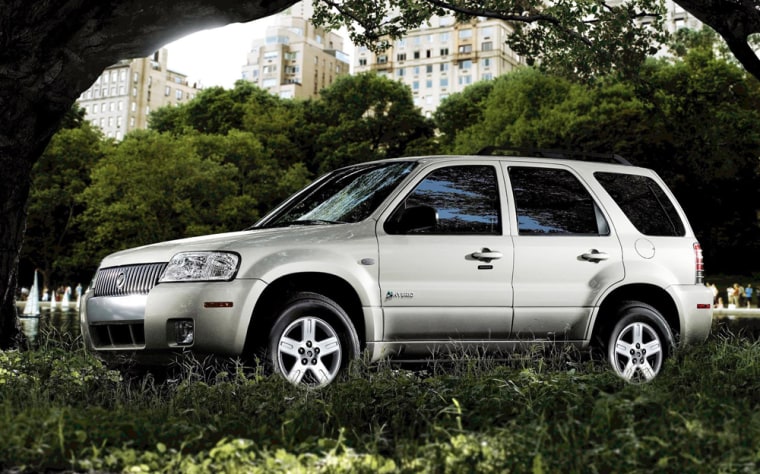Bank of America is offering its employees an unusual benefit — $3,000 in cash for buying a new hybrid vehicle.
A rebate on a new car is a common incentive from manufacturers. But hybrids are prompting a twist on that practice: An increasing number of environmentally minded companies outside the auto sector, including Google, are helping to incent sales. They are offering employees a bonus of sorts for getting a hybrid instead of a less fuel-efficient alternative.
Bank of America announced Feb. 2 that its more than 185,000 U.S. employees would be eligible to receive the $3,000 reimbursement.
The Charlotte-based banking giant also said it is assessing how to offer the same program to its employees in other countries.
The company began a pilot of the program in June, making the rebate offer to 21,000 employees living within 90 miles of Boston, Charlotte and Los Angeles.
Since then, hybrid vehicle purchases by company employees in those areas have more than quadrupled, said Anne Finucane, Bank of America’s chief marketing officer and head of its environmental council. The company would not be specific about the number of hybrid vehicles purchased.
Hybrids generally use less fuel by combining an internal combustion engine with an electric motor, which in some models can act as the only means of propulsion at low speeds. Thus, hybrids can reduce both pollution and the expense of commuting. But they cost more to buy than their conventional counterparts — from $3,000 to $6,000 extra, depending on the model.
Rebates like the one from Bank of America can make hybrid prices more equitable, particularly when combined with federal tax credits of up to $3,400.
Bank of America employees can receive the company rebate only once. Both full- and part-time employees are eligible, as long as they work at least 20 hours weekly.
Finucane said the company is offering the program because it is committed to the environment. Its other environmental initiatives include a voluntary goal of using less energy in Bank of America offices across the country to reduce the company's greenhouse gas emissions 9 percent by 2009.
Hybrid vehicles are winning over more consumers every year. In the first half of 2006, the U.S. had more than 144,000 new hybrid registrations, which is 1.4 percent of all light passenger vehicles registered in that period, according to R.L. Polk and Co.
That is up from 1 percent of the new-car market the previous year.
Data for the second half of 2006 is not yet available. But the new hybrid registrations for 2006 overall are expected to hit 230,000, up 17 percent from the 199,000 hybrids registered in 2005, said Lonnie Miller, R.L. Polk’s director of industry analysis.
Hybrid vehicle sales jumped more than 139 percent from 2004 to 2005 and 81 percent from 2003 to 2004, according to R.L. Polk.
